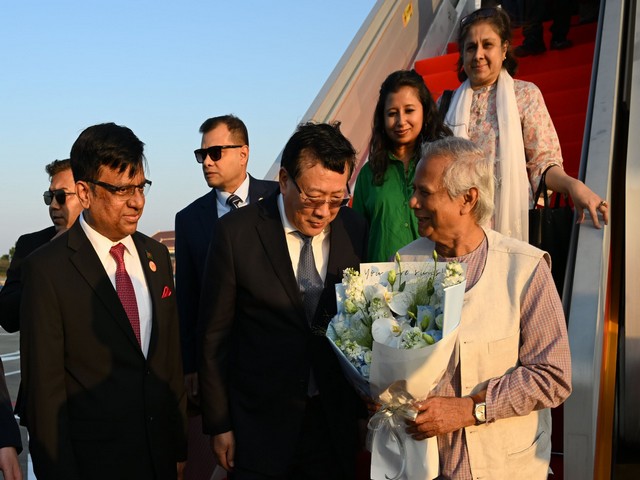Even after 25 years of Ghulja massacre, Uyghurs still push for accountability
Feb 14, 2022

Washington [US], February 15 : The 1997 Ghulja massacre incident in Xinjiang is seen as a harbinger of the Chinese brutality against Uyghurs Muslims.
Gulchehra Hoja, writing in Radio Free Asia (RFA) said that even after 25 years of the incidence, Uyghurs are still pushing for accountability.
Young Uyghurs on that day staged a protest to call for an end to religious repression and ethnic discrimination resulting in the death of many people.
As many as 200 hundred people may have been killed in the massacre -- one report said thousands may have died -- but it received little international attention at the time, said Hoja.
Uyghurs are now using used 2022 Winter Olympics in Beijing opportunity in order to draw the world's attention towards the massacre.
They are using the anniversary of Ghulja to press for an international investigation into what transpired that day and to seek accountability for those behind the bloodshed, reported RFA.
"Twenty-five years ago, the Ghulja massacre was exemplary of the treatment of the Uyghur people by the Chinese authorities and its crackdown on freedom of expression and assembly," said Dolkun Isa, president of the World Uyghur Congress (WUC), in a statement issued February 4.
"Now, the Chinese government's genocidal policies are ensuring to prevent the Uyghur people from ever speaking out again," added Dolkun Isa.
Today, nearly 2 million Uyghurs are thought to have been sent to mass internment camps in the Xinjiang Uyghur Autonomous Region (XUAR) by a government desperately trying to maintain control of an ethnically and religiously diverse population.
Meanwhile, China has continued to hunt down Uyghurs connected to the incident. Many arrested for participating in the protest and in other demonstrations ended up in China's "re-education" camps -- what Uyghurs say are concentration camps.
China began its mass internment campaign in the region in 2017. An estimated 1.8 million mostly Muslim Uyghurs and other Turkic minorities are believed to have been detained in an extensive network of hundreds of camps since then.
Witness testimonies and investigative reports have since alleged that the Chinese government has tortured detainees, sterilized Uyghur women, and conscripted Uyghurs for work in factories.
Behtiyar Shemshidin, who was a police officer during the Ghulja Massacre but later resigned and left Xinjiang, told the WUC and other rights groups that Chinese authorities opened fire on unarmed protesters, reported RFA.
An Uyghur rights activist now in Canada, Behtiyar said the protesters were arrested and tortured. Many detainees, including the demonstration's leader, Abduhelil Abdulmejid, were tortured to death in prison, Behtiyar said. The violence continued for weeks, he said.
Uyghur activist organizations remain steadfast in calling on the international community to hold China accountable for the massacre.
"This year the commemoration coincides with Beijing Winter Olympic Games, so we have raised an awareness of the Ghulja Massacre along with our other activities on the international stage," said Gheyur Qurban, a WUC spokesman in Germany.
"The incident is not only important in the recent history in East Turkistan but also important internationally to raise awareness of Uyghur rights violations perpetrated by the Chinese regime," added Gheyur Qurban.


















